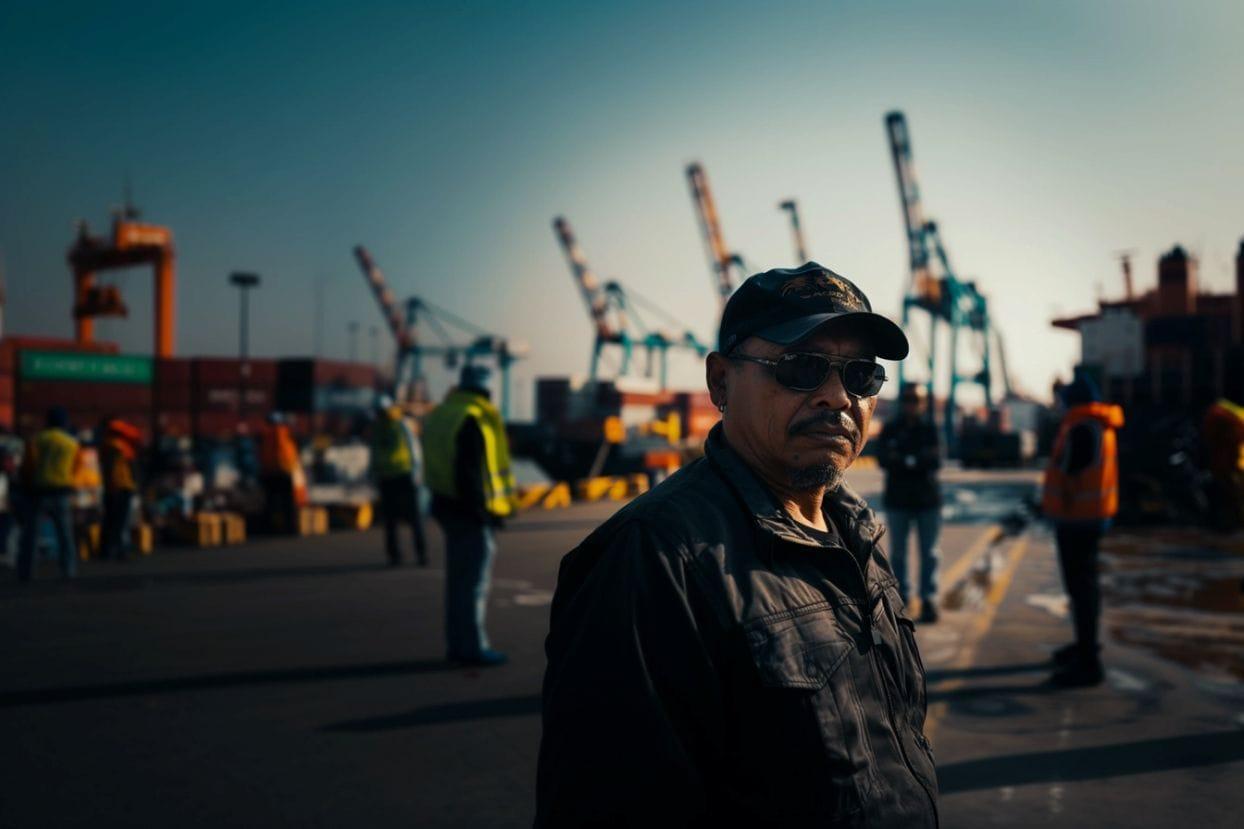Antwerp, Rotterdam, Hamburg – the dark side of the large trading centers
These cities are known not only for their bustling trading centers, but also for a dark reality, drug trafficking. Europe's ports serve as hubs for the smuggling of drugs such as cocaine, which floods Europe's streets.
A look behind the scenes of the ports
In our daily work as freight forwarders, we are, on the one hand, witnesses to the gigantic flows of goods that flow through these ports and, of course, also enthusiastic about the smooth processes associated with them. It's impressive how efficient the logistics are - and at the same time frightening what hiding methods smugglers use to transport drugs.
Only recently, the largest record discovery of cocaine to date was discovered in Germany: More than 35 tons of the drug, hidden in shipping containers between crates of fruit, were discovered thanks to a tip from the Colombian authorities. The street value of this lot is a staggering 2.6 billion euros.
Hamburg's bleak reality
As freight forwarders, we often have direct contact with the Port of Hamburg. For us it is an important economic factor and workplace, but we also see the dark side. The port of Hamburg plays a tragic role in the international cocaine trade. Here, South American drug lords use the port as the main transshipment point for their illegal activities.
The cartels' sophisticated hiding methods
In specialist articles you can often read about the cartels' sophisticated hiding methods. The cocaine is hidden in containers from South American ports, often in false bottoms, holdalls or between loads of fruit and vegetables. These methods show how creative and unscrupulous the cartels are at the same time.
The "Gayane" affair and its effects
An example that shaked us all was the "Gayane" affair in 2019. US authorities discovered 20 tons of cocaine worth $ 1.3 billion on the container ship "Gayane". This unprecedented drug discovery covered the deep infiltration of a very large shipping company through the drug mafia and revealed serious security gaps in the entire shipping industry.
From sailors to smugglers
The stories of sailors turned into smugglers through violence and intimidation by the drug mafia are also alarming. We can hardly imagine the pressure these people were under. The Balkan drug mafia deliberately threatened the shipping company employees with violence and forced them to load drugs onto the moving ship on the high seas.
Revelation and consequences
The "Gayane" case came to light due to the reporting of Bloomberg Businessweek. US authorities confiscated the ship, searched the containers and secured over 15,000 cocaine blocks. Several crew members were arrested and the shipping company threatens a fine of $ 700 million.
A turning point for the industry
The "Gayane" case could be a turning point for the shipping industry. As a freight forwarder, we know about the need for stricter controls and compliance standards to prevent criminal activities. The affected shipping company is now investing millions in new technologies for smuggling detection and emphasizes the need for industry -wide cooperation to combat drug trafficking.
The need for a rethink
In order to preserve their integrity and regain the trust of the public, the shipping industry should fundamentally improve its security measures. The cocaine find on the "Gayane" serves as an alarming signal and makes it clear that there is an urgent need for action.
Conclusion
The cocaine find on the "Gayane" and the latest find of 35 tons of cocaine in the port of Hamburg are shocks for the shipping industry and illustrate the need for a consistent approach to drug trafficking and organized crime. These cases serve as a wake -up call for the industry and all actors in the supply chain to tackle this global problem together.
As freight forwarders, we have also had experience with smuggling attempts. One of our drivers was once caught trying to smuggle cigarettes in a truck. Such incidents show that the threat of smuggling is ever-present and that we must remain vigilant to prevent illegal activities.
Through our daily work in logistics and close contact with the major ports in Europe, we are aware of the responsibility we bear. It is up to all of us to work together to combat smuggling and ensure our trade routes remain clean and safe.





